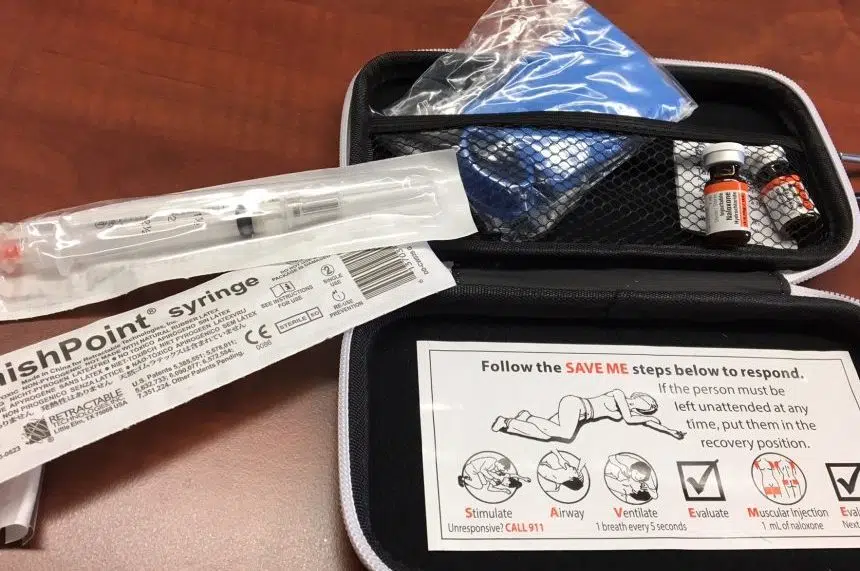An addictions treatment expert wants families and addicts to know there is hope for recovery if they treat it as a disease instead of a drug problem.
Regina police are continuing to warn people about the dangers of fentanyl after a string of 62 overdoses since Jan. 1, including 56 within the past two weeks. Two people have died.
Ian Rabb is an addictions specialist and interventionist with Aurora Recovery Centre in Manitoba. He said those numbers may alarm families, but they will not motivate addicts to get clean.
“Your addiction is stronger than your desire to live. So you’re going to need more of whatever drug or substance you’re using or alcohol — the pull to that is much stronger than common sense,” Rabb explained.
“You’d think that common sense would say, ‘Oh my God, lots of people are dying using this drug. This could be my last breath.’ But unfortunately when you have the disease of addiction, it’s impossible to see things that way.”
To Rabb, the opioid crisis is something we should all be paying attention to, but too often people are ignorant and believe addicts should just make better choices and quit. He wants people to understand that addicts can’t just quit, because he says it’s a disease and mental health issues are often at the root of addictions.
“Very often the misconception is that people think that drug is the problem or alcohol is the problem, and really it’s a deeper problem than that,” he said. “That has to be resolved in people when you try to get them clean and sober and getting working on their past traumas and their past family history and those things that ultimately cause addictions. So we really view it in the wrong way.”
Years before he started working to help others get treatment for their addictions, Rabb had to hit rock bottom and face his own drug addictions. He was highly educated as a doctor of optometry, but his addiction to crystal meth and many other drugs led him to a life of crime on the street.
After his seventh arrest, Rabb finally found his way to a better life through a recovery program and support from his father. He tells his story to help people who feel helpless battle addictions on their own.
“The truth is that there’s hope,” he said. “If you would have talked to my parents 20 years ago and family members, they would have thought there was no hope for me, that I was going to die in an addicted state or end up in jail for life.
“Ultimately for people that help and find recovery, we learn that there’s another way to live and most importantly, our goal is to help others find that system of recovery as well.”
Rabb founded Two Ten Recovery to provide safe and sober housing for men and women who go through addictions treatment and then came up with the vision for Aurora Recovery Centre, a private treatment facility based in Gimli, Man.
Rabb explained that Aurora has expertise in all types of withdrawal and even has a medical centre on site to deal with opiate withdrawal.
Now he helps families stage interventions for the people they care about. He said there are other people like him based in every city who can help navigate the public or private system to get help.
Rabb wants people to understand that drug addiction is not a choice, but recovery is. Intervention and agreeing to treatment are just the first steps, and relapses are a very common part of the process.
“Once we plant the seed in people of recovery, the seed is always there; unfortunately addiction is a fatal and progressive disease,” he said. “So we plant the seed and we really have to try and keep nurturing that seed in our loved ones to get them back to being interested in a place of treatment again or getting involved in 12 step (programs) or recovery.”







